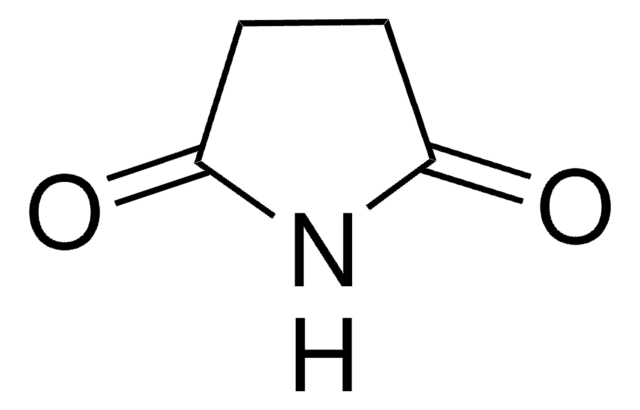439215
Tetrahydrofuran
≥99.9%, suitable for HPLC, inhibitor-free
Synonym(s):
THF, Butylene oxide, Oxolane, Tetramethylene oxide
About This Item
Recommended Products
product name
Tetrahydrofuran, suitable for HPLC, ≥99.9%, inhibitor-free
vapor density
2.5 (vs air)
Quality Level
vapor pressure
114 mmHg ( 15 °C)
143 mmHg ( 20 °C)
Assay
≥99.9%
form
liquid
autoignition temp.
610 °F
expl. lim.
1.8-11.8 %
technique(s)
HPLC: suitable
impurities
≤0.015% peroxide (as H2O2)
<0.02% water
evapn. residue
<0.0005%
refractive index
n20/D 1.407 (lit.)
bp
65-67 °C (lit.)
mp
−108 °C (lit.)
solubility
H2O: soluble
density
0.889 g/mL at 25 °C (lit.)
λ
H2O reference
UV absorption
λ: 212 nm Amax: 1.0
λ: 250 nm Amax: 0.180
λ: 300 nm Amax: 0.020
λ: 350-400 nm Amax: 0.005
SMILES string
C1CCOC1
InChI
1S/C4H8O/c1-2-4-5-3-1/h1-4H2
InChI key
WYURNTSHIVDZCO-UHFFFAOYSA-N
Looking for similar products? Visit Product Comparison Guide
General description
Application
- Formation of diacetylinic polymers.
- RAFT polymerization of p-acetoxystyrene.
- Synthesis of di-tert-butyl-Phosphinoferrocene.
- As mobile phase solvent in high-performance liquid chromatography.
- As a solvent in the preparation of spin-coated poly(bisphenol A decane ether).
- Formation of butyrolactone (BTL) by green oxidation method.
- As a solvent for lignin depolymerization to isolate phenolic monomer.
recommended
Signal Word
Danger
Hazard Statements
Precautionary Statements
Hazard Classifications
Acute Tox. 4 Oral - Carc. 2 - Eye Irrit. 2 - Flam. Liq. 2 - STOT SE 3
Target Organs
Central nervous system, Respiratory system
Supplementary Hazards
Storage Class Code
3 - Flammable liquids
WGK
WGK 1
Flash Point(F)
-6.2 °F - closed cup
Flash Point(C)
-21.2 °C - closed cup
Personal Protective Equipment
Choose from one of the most recent versions:
Already Own This Product?
Find documentation for the products that you have recently purchased in the Document Library.
Articles
Polar graphitic carbon enables UHPLC separation of highly polar pesticides, herbicides, and Vitamin D metabolites, advancing liquid chromatography capabilities.
Polar graphitic carbon enables UHPLC separation of highly polar pesticides, herbicides, and Vitamin D metabolites, advancing liquid chromatography capabilities.
Polar graphitic carbon enables UHPLC separation of highly polar pesticides, herbicides, and Vitamin D metabolites, advancing liquid chromatography capabilities.
Polar graphitic carbon enables UHPLC separation of highly polar pesticides, herbicides, and Vitamin D metabolites, advancing liquid chromatography capabilities.
Our team of scientists has experience in all areas of research including Life Science, Material Science, Chemical Synthesis, Chromatography, Analytical and many others.
Contact Technical Service









